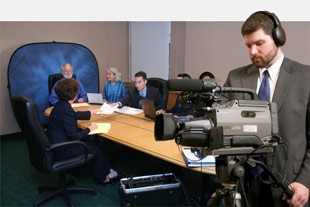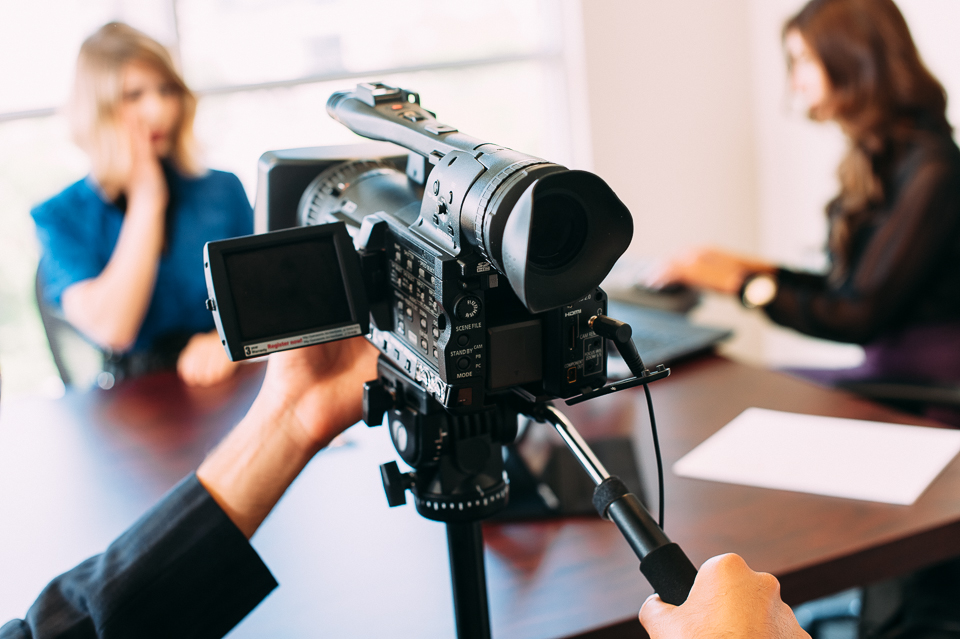Affordable Legal Videography for Legal Experts.
Affordable Legal Videography for Legal Experts.
Blog Article
The Role of Lawful Videography in Depositions and Tests
Legal videography has actually become an important device in both depositions and tests, providing a complex technique to recording witness statements. By capturing not just the spoken word yet likewise the nuances of non-verbal interaction, this tool boosts the reputation of statements and protects essential evidence for future process. As attorneys progressively recognize its value, it triggers a deeper assessment of just how these visual records can influence juror assumptions and trial results. What implications might these advancements hold for the future of lawful method?
Value of Legal Videography
Lawful videography plays a critical function in the paperwork and discussion of depositions and tests. This customized field integrates technological abilities with legal expertise to produce a trusted document of procedures that can considerably affect instance outcomes. The visual element of lawful videography enhances the understanding of witness testament, permitting jurors and judges to observe not only the talked words but likewise the behavior, feelings, and body language of the witnesses.

The value of lawful videography extends past the courtroom; it likewise plays a crucial duty in maintaining evidence for future reference, whether for allures or additional lawsuit. Its combination into the lawful procedure is essential for making certain a reasonable and accurate depiction of the realities, ultimately contributing to the search of justice.

Process of Legal Videography
While recording the subtleties of depositions and trials, the process of legal videography involves several crucial actions that ensure high-grade, precise recordings. At first, a professional legal videographer prepares by assessing the case products and recognizing the details requirements of the deposition or trial. This preparation consists of familiarizing themselves with the individuals and the context, which helps in catching significant details.
On the day of the recording, the videographer establishes the required tools, which usually includes high-def video cameras, microphones, and appropriate illumination. Making sure ideal angles and audio quality is crucial, as it straight influences the efficiency of the recording. The videographer connects with attorneys and participants to establish procedures, ensuring that every person comprehends the recording process.
During the deposition or trial, the videographer diligently tape-records the process, paying close attention to both verbal and non-verbal signs. legal videography. This includes catching the temperament and reactions of witnesses and lawyers. After the session concludes, the videographer may edit this link the footage for clarity and conformity with lawful standards, creating an end product that properly shows the procedures for future reference and usage in legal contexts
Benefits in Depositions
The incorporation of videography in depositions supplies countless benefits that enhance the overall process of gathering evidence. One primary advantage is the ability to catch witness testimonies with aesthetic and acoustic integrity, providing a more accurate depiction special info of the witness's behavior, tone, and body movement. This multidimensional technique allows lawyers and courts to evaluate integrity better than traditional written records alone.
Furthermore, videographed depositions work as an effective tool for protecting testimony. Must a witness become not available for trial, their videotaped deposition can be played in court, making certain that their evidence remains available and appropriate. This facet considerably decreases the danger of losing essential information that can impact situation end results.
Additionally, the use of lawful videography promotes much better prep work for attorneys. Reviewing video footage enables lawful teams to assess and fine-tune their techniques, identifying strengths and weaknesses in their cases. This primary advantage can bring about even more engaging discussions in court.
Lastly, videography improves the overall professionalism of the deposition procedure, instilling self-confidence in clients regarding the thoroughness of their legal representation. By leveraging innovation, attorneys can considerably enhance the performance of depositions.
Influence on Trials
In many trials, the assimilation of videography can substantially affect the discussion of proof and the court's assumption. Lawful videography captures witness testaments and crucial evidence in a vibrant style, enabling jurors to engage with the material on several degrees. This visual component improves the storytelling aspect of a test, offering context and emotional vibration that standard text-based evidence might lack.
Additionally, video recordings can work as powerful tools for impeachment throughout interrogation. When discrepancies arise in between a witness's previous statements and their court room statement, video clip proof gives an unbiased reference that can guide jurors' opinions. This immediacy and clarity can bolster the credibility of a celebration's narrative while at the same time weakening opposing debates.
Additionally, the use of videography can help streamline intricate details, making it extra obtainable to jurors that might have a hard time to grasp elaborate information presented exclusively with spoken testament. By combining visuals with auditory information, lawful videography can boost retention and understanding, eventually influencing the jury's decision-making process. The influence of videography in tests extends beyond plain looks; it plays a vital function in shaping the lawful landscape and end results.
Future Trends in Legal Videography
As we look towards the future of legal videography, numerous emerging patterns guarantee to improve its role within the court. One substantial trend is the combination of fabricated intelligence (AI) in video evaluation and modifying - legal videography. AI can top article streamline the procedure of determining vital moments in tape-recorded depositions, enabling lawyers to promptly access relevant content, consequently boosting performance in case preparation
Additionally, the increase of online truth (VIRTUAL REALITY) and boosted fact (AR) technologies is expected to transform how jurors experience proof. By submersing jurors in a substitute setting, these modern technologies can provide a more profound understanding of complex scenarios, resulting in more informed deliberations.

Additionally, the raising need for remote depositions, sped up by the COVID-19 pandemic, will likely continue. Legal videographers will require to adjust to brand-new software application and platforms to guarantee premium recordings in online settings.
Lastly, the expanding focus on data safety and security will demand more stringent procedures for storing and sharing video clip proof. As the legal landscape progresses, lawful videographers must stay abreast of these patterns to preserve their significance and effectiveness in the judicial procedure.

Conclusion
In recap, lawful videography offers an essential function in the judicial procedure, boosting the honesty of depositions and trials. As innovation proceeds to advance, lawful videography is positioned to further transform its role within the legal landscape.
Report this page